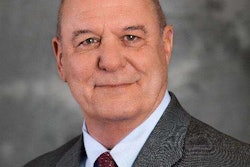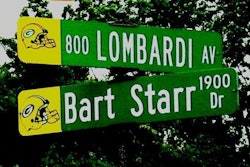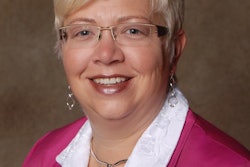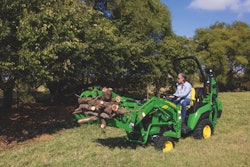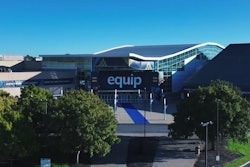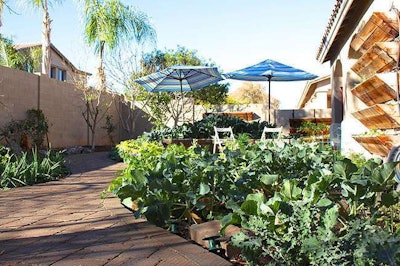 An edible landscape such as this one can be an attractive, peaceful place to relax outdoors.
An edible landscape such as this one can be an attractive, peaceful place to relax outdoors.Photo: Agriscaping Technologies
A few summers ago, I was visiting a friend in Chicago when I noticed on our walk home from lunch a front flowerbed with lettuce in it. The beautiful yellow and purple leaves looked nice among some annuals, and I couldn’t help but wonder if there was function behind the lettuce leaves other than looking colorful. After all, why not use your plot of land, no matter the size, to grow something to feed your family?
The thing is, many people don’t know the first thing about landscaping, let alone how to cultivate food in a garden. Agriscaping Technologies, which took root near Phoenix in 2006 and is currently trying to raise capital to expand, provides resources for homeowners to incorporate edibles into their landscape. The company is developing software called MyAgriscapePro, which will provide tips on how to grow edibles for your particular zip code, including fruits, vegetables, edible flowers and medicinal plants.
“This is not an algorithm. It’s not mathematics,” says Justin Rohner, CEO of Agriscaping Technologies. Data is collected from professional landscapers who have become part of the AgriscapingPro network and who have tried to grow certain foods at certain times of the year, in certain locations. What works in warm Arizona might not work in snowy New York and Agriscaping Technologies’ software reflects that.
According to its Kickstarter website, where the company is soliciting investments to help it expand its network of landscaping professionals, the new software “shows you exactly what to plant, when to plant it and how to care for it, custom fit to where you grow.” The web-based tools help with topics such as climate zone information, weeding and water advice, pruning techniques and the like.
One of the largest supporters of Agriscaping Technologies thus far is the National FFA. Programs have been implemented in high school classrooms to teach children about food in the landscape and there are even a few certifications high school students can get from Agriscaping. Students can set up AgriscapingPro networks as part of a class project.
Rohner says his company currently has information for 96 cities in five countries and he’s hoping to see the network expand steadily as funds flow in from Kickstarter.
